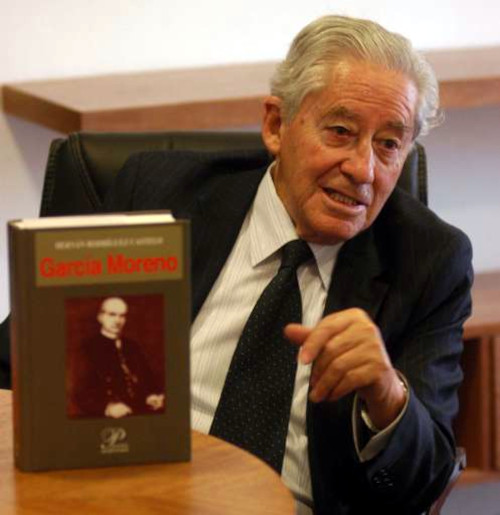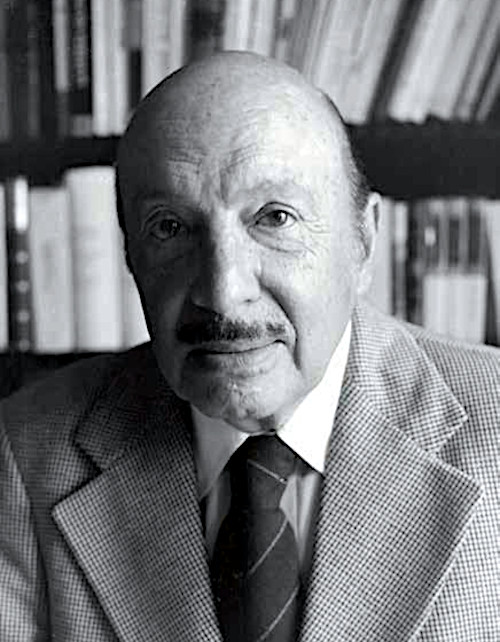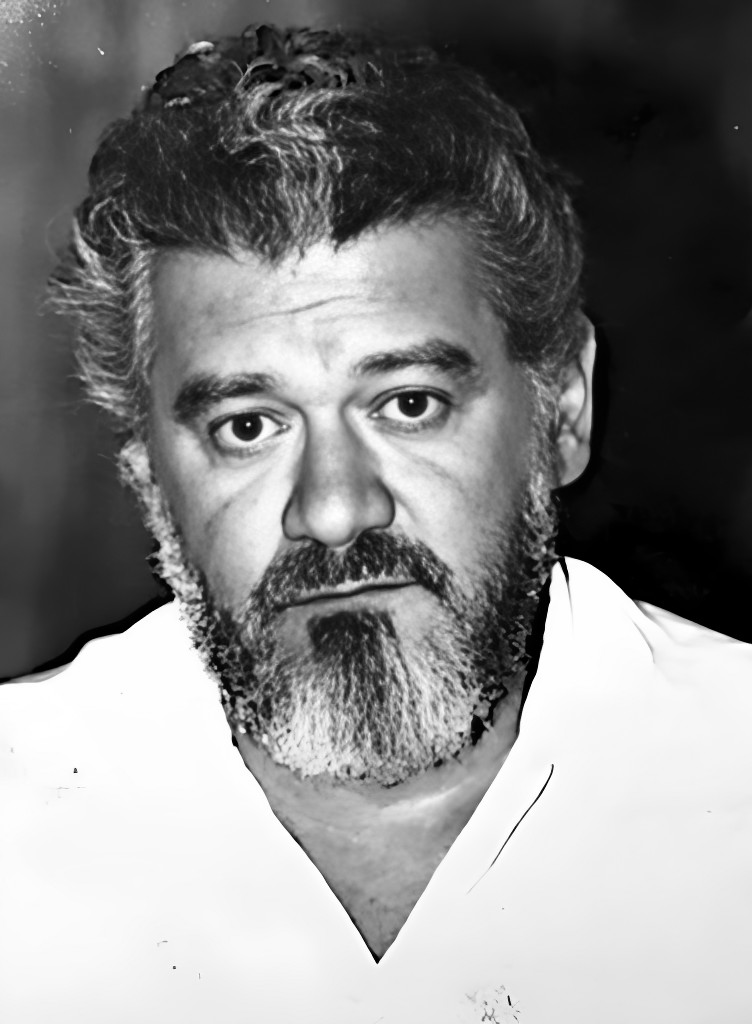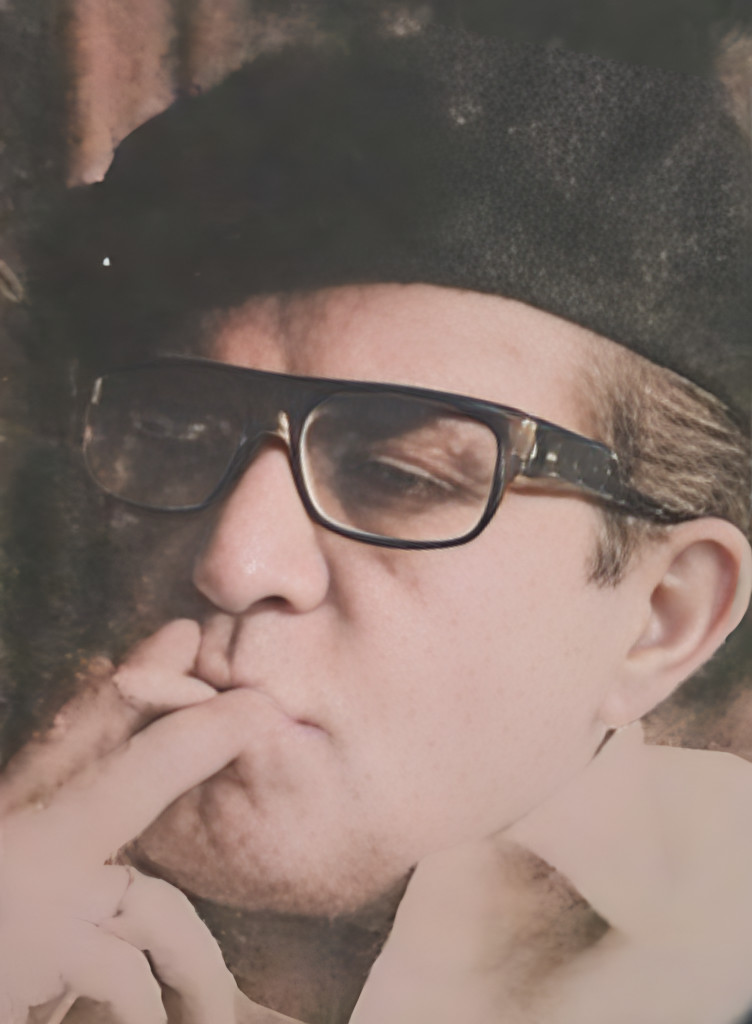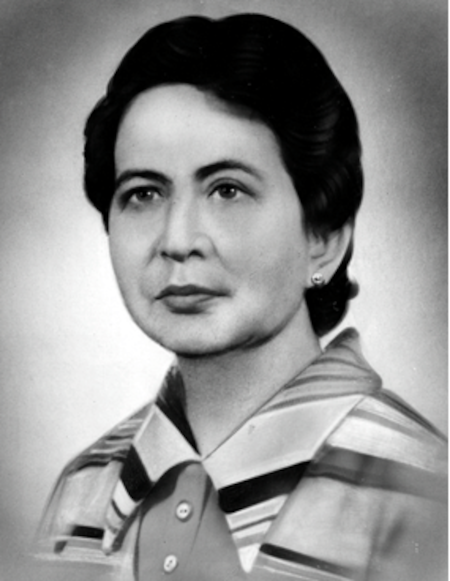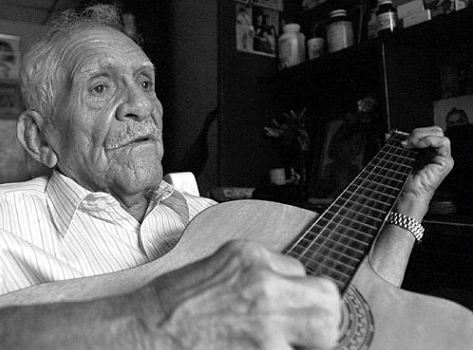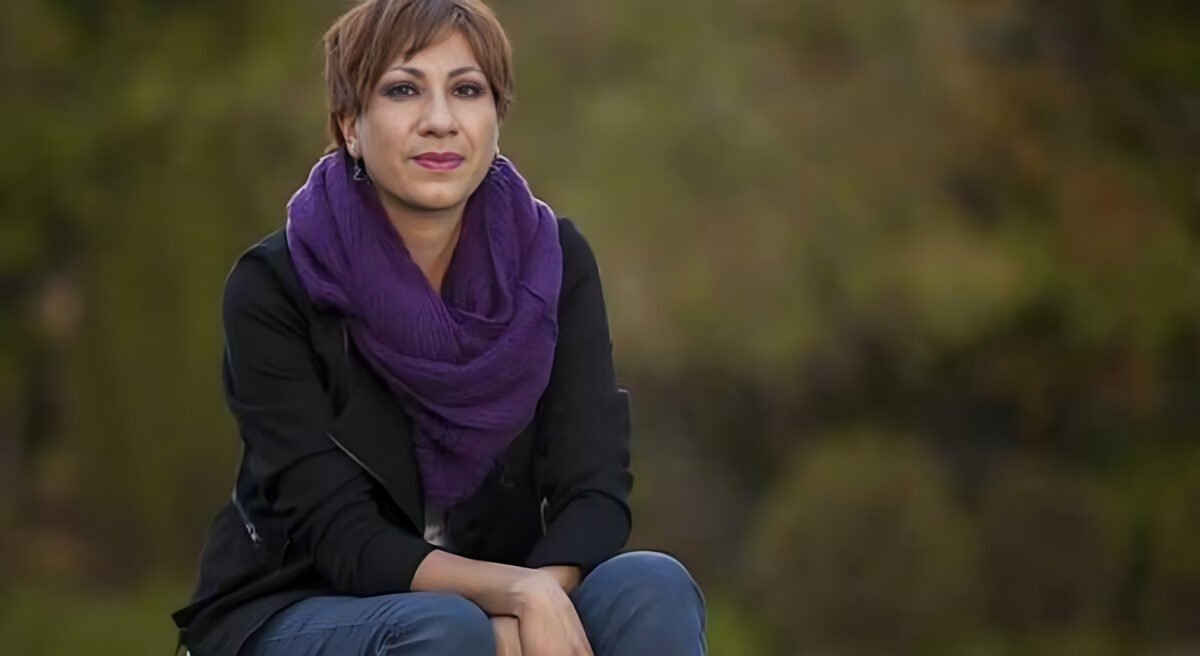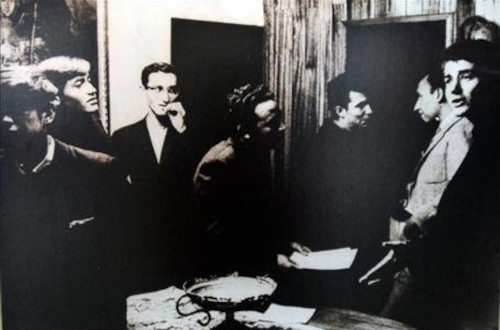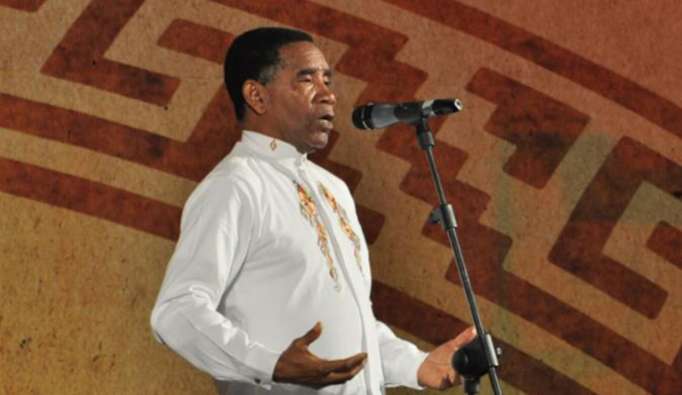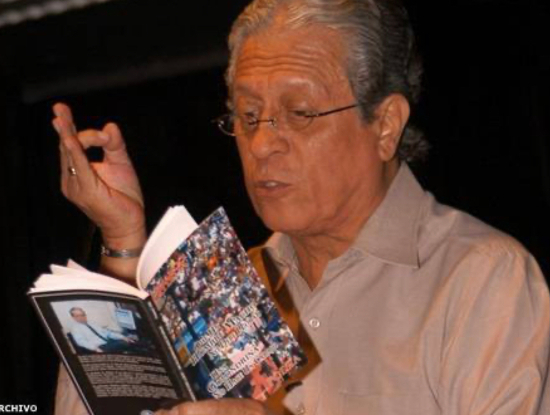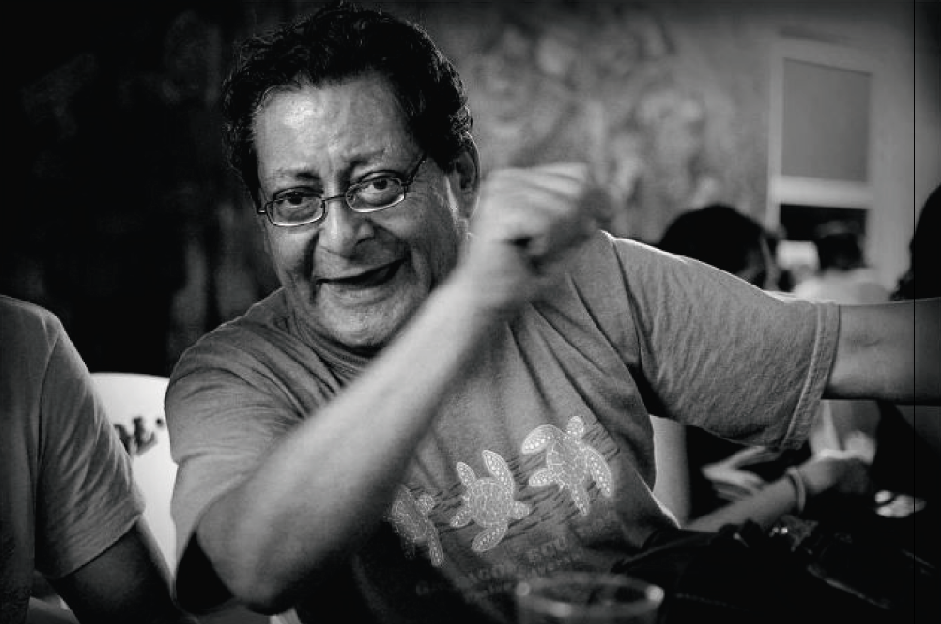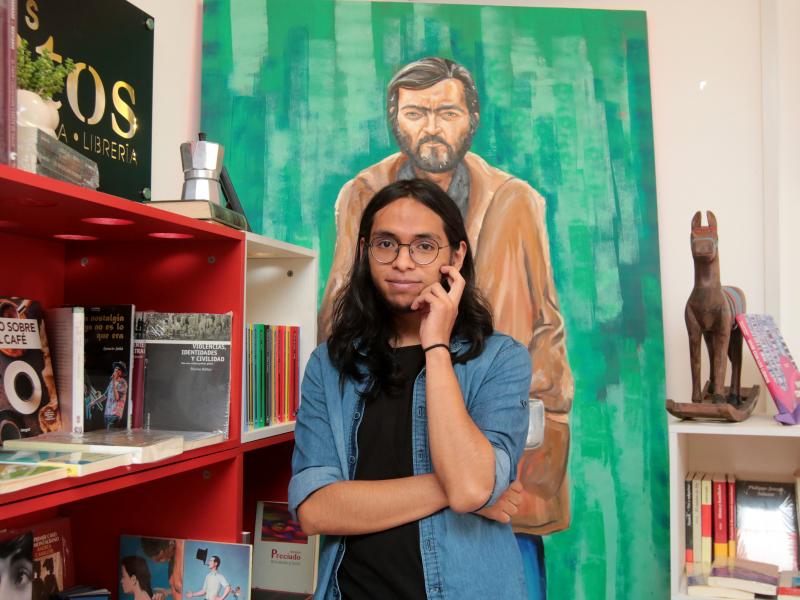Hernán Rodríguez Castelo (Quito, June 1, 1933 – February 20, 2017) was a writer, historian of literature, art critic, essayist, and linguist. He wrote more than 120 books, and also wrote the foreword of books by other authors. He was a member of the Royal Spanish Academies of History and Language, and of the Ecuadorian Academies of History and Language.
Continue reading “Hernán Rodríguez Castelo”Author: richard
Gustavo Vásconez Hurtado
Gustavo Vásconez Hurtado (Quito, April 3, 1911 – Quito, 1988) was an Ecuadorian novelist, biographer and diplomat. He returned to Ecuador in 1931 after finishing his education in England, France, and Switzerland. He published his first novel, “Vivien Christie,” in 1934, and his second, “Camino de las Landas,” in 1940. His first biography, “Pluma de Acero o La Vida Novelesca de Juan Montalvo,” was published in 1944. He was a member of the Bolivarian Society of Colombia, the Colombian Poetic Center, the Nariñense Academy of History, the Institute of Hispanic Culture, the Literary Legal Academy of Quito, and the House of Ecuadorian Culture. He was also the president of the Ecuadorian Writers Society.
Continue reading “Gustavo Vásconez Hurtado”Pedro Saad Herrería
Pedro Saad Herrería (Guayaquil, September 16, 1940 – Quito, June 6, 2014), was an Ecuadorian writer, filmmaker, politician, diplomat, historian and journalist. He was the son of Ecuador’s communist party leader, Pedro Saad Niyaim. He authored several books, such as “Historias del pueblo de Guayaquil” (2010), “Ecuador un país en imágenes/Ecuador a Country in Images” (2002, in Spanish/English bilingual edition), and “La caída de Abdalá” (1997), among others. In April 2014, Saad was honored by the Voltaire Masonic Lodge at the House of Ecuadorian Culture in Quito with the Cultural Merit Medal for his extensive and prolific intellectual career.
Continue reading “Pedro Saad Herrería”Eugenio Moreno Heredia
Eugenio Moreno Heredia (Cuenca, 1926—1997) was a poet, fiction writer, nonfiction writer, literary critic, university professor, magistrate judge and member of the communist party. He belonged to the literary groups “La Madrugada,” “Elan,” and “Tzánticos.” He was the son of the poet Alfonso Moreno Mora. His poems have been translated into several languages and published in anthologies.
Continue reading “Eugenio Moreno Heredia”Kristel Ralston
Kristel Ralston (Guayaquil, 1984) is a bestselling writer of more than 25 contemporary romance books. Her novel “Lazos de cristal” was one of the five manuscripts on the shortlist for the Second Literary Contest of Indie Authors (2015), sponsored by Amazon, Diario El Mundo, Audible and Esfera de Libros. This contest received more than 1200 manuscripts from different literary genres of Spanish speakers from 37 countries. Kristel was the only Latin-American among the five finalists of the contest. Ralston was also on the shortlist for the romantic novel contest Leer y Leer 2013, organized by Vestales publishing house from Argentina, and she is co-administrator of the literary blog Escribe Romántica. Ralston has published several novels. A prestigious Ecuadorian magazine nominated her as one of the Women of the Year 2015 in the Art category for her literary work.
Continue reading “Kristel Ralston”Fanny Caicedo
Emma Fanny Caicedo Mier, also known as Fanny Caicedo de Cobo (Yaguachi, 1932 – circa 2001), was an Ecuadorian poet and teaching professor. Her books include Perlas Azules and Cantares del Silencio. She was a councilor of the Tungurahua Province. She wrote for several newspapers in the city of Ambato, including La Crónica, Avance, El Heraldo and others.
Continue reading “Fanny Caicedo”Gustavo Egüez Villacreses
Gustavo Egüez Villacreses (Ambato, March 26, 1923 – Guayaquil, May 29, 1981) was a poet and writer. Egüez received several awards for his poetry: In 1952 he won First Prize of the newspaper Diario La Nación (Guayaquil) for his poem “Romancero de Navidad′′ and he was bestowed the Gilded Orchid in the floral games of the magazine Radial Vida Porteña.
Continue reading “Gustavo Egüez Villacreses”Susana Freire García
Susana Freire García is a writer, historian and cultural promoter. She was born in 1977. She has a doctorate in Jurisprudence from the Central University of Ecuador but does not practice law. She is a researcher and historian of various aspects of the city of Quito, and is part of the Proyecto Quitología (English: Quitology Project), founded by Ulises Estrella. She has published 9 books with themes related to the city. Her books include Tzantzismo: tierno e insolente (2008), Un maestro en tiempos difíciles (2013), and Caperuso y el violinista (2010), which won the Alicia Yánez Cossío Children’s Literature Contest. She is also the co-author of Cae el telón (2012). Freire’s father is the writer and historian Edgar Freire Rubio (Ecuador, 1947).
Continue reading “Susana Freire García”Tzantzismo
Tzantzismo was a cultural movement from Ecuador’s 1960s. It was founded in Quito by Marco Muñoz and Ulises Estrella, while the rest of the members came together throughout the decade. They were influenced by other Ecuadorian intellectuals such as Jorge Enrique Adoum, César Dávila Andrade and Agustín Cueva. Tzantzismo was expressed primarily in poetry, and to a lesser extent in fiction and theater. This literary revolutionary movement emerged in response to an alleged degradation and gentrification of Ecuadorian literature. An important book on the movement’s history was written by author Susana Freire García.
Continue reading “Tzantzismo”Antonio Preciado
Antonio Preciado Bedoya is an Afro-Ecuadorian poet, university professor and diplomat. He was born in Esmeraldas on May 21, 1941. He was director of the Municipal Center of Culture of the city of Esmeraldas and President of the Esmeraldas chapter of the House of Ecuadorian Culture. For 23 years he was director of the Department of Culture of the Central Bank of Ecuador and rector of the University of Esmeraldas. He has been dubbed the “Poet of the Diaspora.” Together with Nelson Estupiñán Bass, Preciado is considered one of the greatest exponents of Esmeralda poetry. Siete veces la vida (1967) is widely regarded as his most famous collection of poems. Some of his work has been translated into English, French and Romanian.
Continue reading “Antonio Preciado”Édison Gabriel Paucar
Edison Gabriel Paucar Tufiño (Quito, July 29, 1988) is an Ecuadorian novelist, short story writer and journalist. In 2012, his book of short stories Malas compañías y otros caballos de Troya won the Joaquín Gallegos Lara Prize. Paucar’s first novel Mientras llega la lluvia (2017) was a finalist of the North Texas Book Festival Award and received honorable mention at the Darío Guevara Mayorga Prize. Since 2019 he has worked as a journalist at La Hora newspaper.
Continue reading “Édison Gabriel Paucar”Fernando Artieda
Fernando Artieda Miranda (Guayaquil, June 14, 1945 – April 15, 2010) was an Ecuadorian writer, poet and journalist. For 40 years he worked as a journalist for newspapers and magazines such as La Razón, Expreso, Meridiano and Hoy, as well as television media such as Ecuavisa and RTS. During the presidency of Abdalá Bucaram he was the secretary of communications.
Continue reading “Fernando Artieda”Fernando Nieto Cadena
Fernando Nieto Cadena (Quito, March 29, 1947 – Villahermosa, Mexico, March of 2017) was an Ecuadorian poet. In the 1970s he founded the literary group Sicoseo, which consisted of writers such as Fernando Artieda, Jorge Velasco Mackenzie, Jorge Martillo and Raúl Vallejo. In 1978 he moved to Mexico, returning to Ecuador on only two occasions. In 1989 he was awarded the Jorge Carrera Andrade Prize for his poetry book “Los des(en)tierros del caminante.”
Continue reading “Fernando Nieto Cadena”Leira Aráujo Nieto
Leira Aráujo Nieto (Guayaquil, 1990) is an Ecuadorian poet, writer, screen writer, actress, literature professor, and researcher. In 2015 she published her first poetry book, “Caníbales.” That same year her poetry collection, “Última noche en el país de los hoteles,” won the Ileana Espinel Poetry Prize. Her poems have been published in various national and international anthologies. She earned a PhD in Spanish Language and Literature from the University of Granada (Spain). She currently lives in Granada, Andalusia, Spain.
Continue reading “Leira Aráujo Nieto”Josué Negrete
Josué Negrete is a poet from Quito, Ecuador. In 2020 he won the Ileana Espinel Poetry Prize for his book Bajo las ramas que caen, caen, caen.
.

